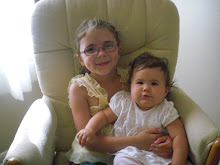Describe a wiki you found that inspires you to create one of your own. What hurdles might stand in the way of your using a wiki? What would it take to remove the hurdles? Is it worth the fight?
I found a site by Vicki Davis and kept running into her blog and wiki as I looked around. I liked reading her blog about the ways in which wikis have helped her students re-energize about learning. http://westwood.wikispaces.com/ I think anything that engages students and gets them excited about learning, creating, and actually putting some knowledge into a more permanent part of their brain is right for me.
I envision two hurdles for me as I begin to think about a class wiki. I think the first is starting small with a very definable topic with very explicit objectives. I have a tendency to overwhelm myself with ideas and then feel committed to follow through partly because I have high expectations but also because when students have become head over heels involved there's no choice but to continue.
The second hurdle for me is an ongoing one. I am constantly thinking about assessment and how it is changing. We often question if assessments should be whatever the students can produce completely on their own on a given day without any tools and a blank piece of paper in front of them or is the collaborative nature of our world changing the entire ballgame? I am not at all about softening standards or expectations and it seems that many think of collaborative learning as a way to make things easier. However, I usually think to the contrary. I think that students feel a greater committment to learning and quality work when they know their content is public and their input is necessary for the good of the group. I also think that students learn way more from each other than from us. This year I spent hours helping a student with division. One day another student basically pulled him away from me, talked to him over some blocks, and suddenly division was easy. I asked them both why a student's less than standard explanation worked and the answer was that, "he talks like me." So, apparently I speak some form of alien language! I think ongoing collaboration allows all students access to information and knowledge especially when most students can't "get it" on the first presentation. As they add, edit, revise, or simply read what others have written, they will begin to understand the content. Time is the biggest gift for teachers, right? It's what we all beg for and demand. Why don't we think that our students feel the same way? Giving them a way to access content in our class anywhere, anytime is one way to do that. I don't think I have an answer about how wikis can fit into the assessment picture but that's why I have to remember to start small.
Wow, that was a lot of rambling but it's important for me to think through this even at the expense of the reader!
About Me

- A. Spohn
- I am currently teaching kindergarten at Lenawee Christian School in Adrian, Michigan!
Welcome!
Welcome to my first educational blog! I am currently working on an online class to learn more about Web 2.0 tools available to me both personally and professionally. I look forward to learning a lot this summer!
Monday, June 29, 2009
Subscribe to:
Post Comments (Atom)



Amanda,
ReplyDeleteI'm glad you found Vicki Davis - she's been a groundbreaking educator at integrating emerging technologies!
Take a look at a 3rd grade wikispace: https://alisonsummerford.wikispaces.com/ A couple of years ago as my daughter was student teaching she helped students publish some things on the web. There was probably more time spent on her part than there, scanning in student drawings, graphs, helping them record book reviews as mp3 audiofiles in Audacity, etc. and getting them into the wiki so they could be inserted on each student's page. The public could view, but no one could contact students through the comments. (Parents could have been given the password to leave comments under the Discussion tab.) You're right about narrowing it down to a specific purpose and defined objectives. Start small and simple. Let your students help you find uses.
Sometimes we teachers think we are still in control of all learning. The fact is, the textbook on learning hasn't been written for the next generations yet! Moving into the second decade of the 21st century we haven't even begun to scratch the surface of knowledge about how students will be learning. We aren't always comfortable with taking a back seat to them as facilitators of their own learning. Our best goal should be to create a learning environment that allows them to decide what/when/how they are learning. Oh, wait, there are those state assessments . . . But you gave a great example of students helping each other learn in a way you hadn't planned.
Keep those rambling thoughts flowing, and allow your students the same luxury. You may have a part in writing that "textbook" for next generation teaching & learning! The only thing we can count on is "change!"